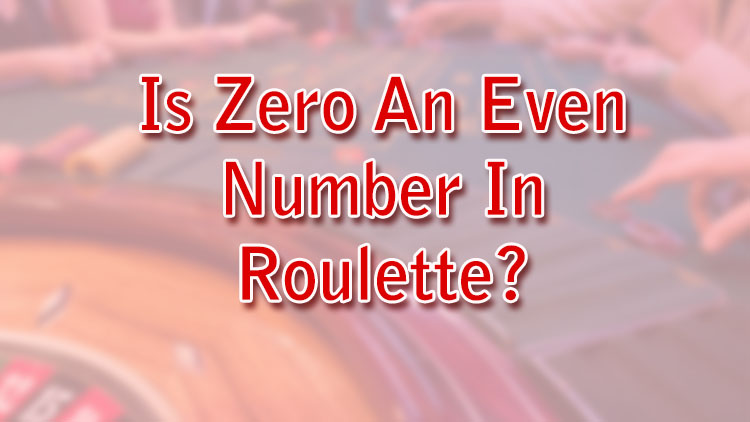
Roulette, a classic casino mainstay, has intrigued gamblers for centuries with its spinning wheel and the element of chance.
Among the myriad of numbers on the roulette wheel, one stands out: the zero. It raises questions, one of the most contentious of which is, is zero an even number in roulette?
This article dives into this question, the reason for zero's existence in the game, and the odds of hitting zero.
Is 0 An Even Number In Roulette?
The zero's status as an even number in mathematics is undisputed, but its classification in the realm of roulette is subject to debate. In mathematics, an even number is an integer that results in another integer when divided by two. Since zero divided by two is zero, it qualifies as an even number.
However, when stepping onto the roulette floor, one needs to leave this mathematical principle at the door. Contrary to its mathematical status, zero is neither classified as an even nor an odd number in the context of roulette. Instead, zero occupies a separate betting category.
In roulette, the house rules reign supreme. While it may seem counterintuitive, the game's rules do not consider zero as an even number. If you placed an even bet and the ball landed on zero, your bet would lose, regardless of zero's even status in the mathematical world.
This rule holds for both European and American roulette. In a European roulette wheel, there's one zero pocket, and in the American version, there's an additional green slot labelled double zero or '00'. However, neither of these zero pockets are considered even for betting purposes. They are exceptions, standing outside the even or odd betting options and counting as a loss in both cases.
Why Is There A Zero In Roulette?
The inclusion of zero in roulette is not arbitrary. It's a strategic decision designed to give the casino or 'the house' an edge, known as the house edge. This built-in advantage for the casino ensures its profits over time.
In European roulette, the wheel contains 37 numbers, including the single zero pocket, leading to a house edge of 2.7%. In American roulette, the wheel features an extra double zero, increasing the total numbers to 38 and raising the house edge to approximately 5.26%.
Without the zero, the odds of the outside bets would be a 50-50 split, giving the player and the house an equal chance of winning. The inclusion of the zero tilts this balance in favour of the house, making the game more profitable for the casino in the long run.
What Are The Odds Of Getting Zero?
The odds of hitting the zero in roulette vary depending on the version of the game. In European roulette, with its single zero, the odds of the ball landing on zero are 1 in 37, or 2.70%. In American roulette, which has an additional zero, the odds of hitting zero are 2 in 38 (1 in 19), or 5.26%.
Regardless of the version, the payout for a successful straight-up bet on zero is the same: 35:1. In American roulette, you can place a Split bet covering 0 and 00, the payout for the ball landing on a zero pocket, in this case, would be 17:1.
Conclusion
Understanding the role of zero in roulette can help you understand the workings of roulette more and can help you make more informed betting decisions. Despite being an even number in mathematics, zero isn't considered an even number in roulette. Instead, it serves as the linchpin for the casino's house edge.
Understanding the house edge can explain why many players believe roulette to be rigged at times despite it being untrue. The house edge is no sneaky trick; it is an advantage built into the game itself and is present in some form in all casino games.
Remember, the most important thing is to enjoy the game and play responsibly.
*All values (Bet Levels, Maximum Wins, etc.) mentioned in relation to this game are subject to change at any time.
